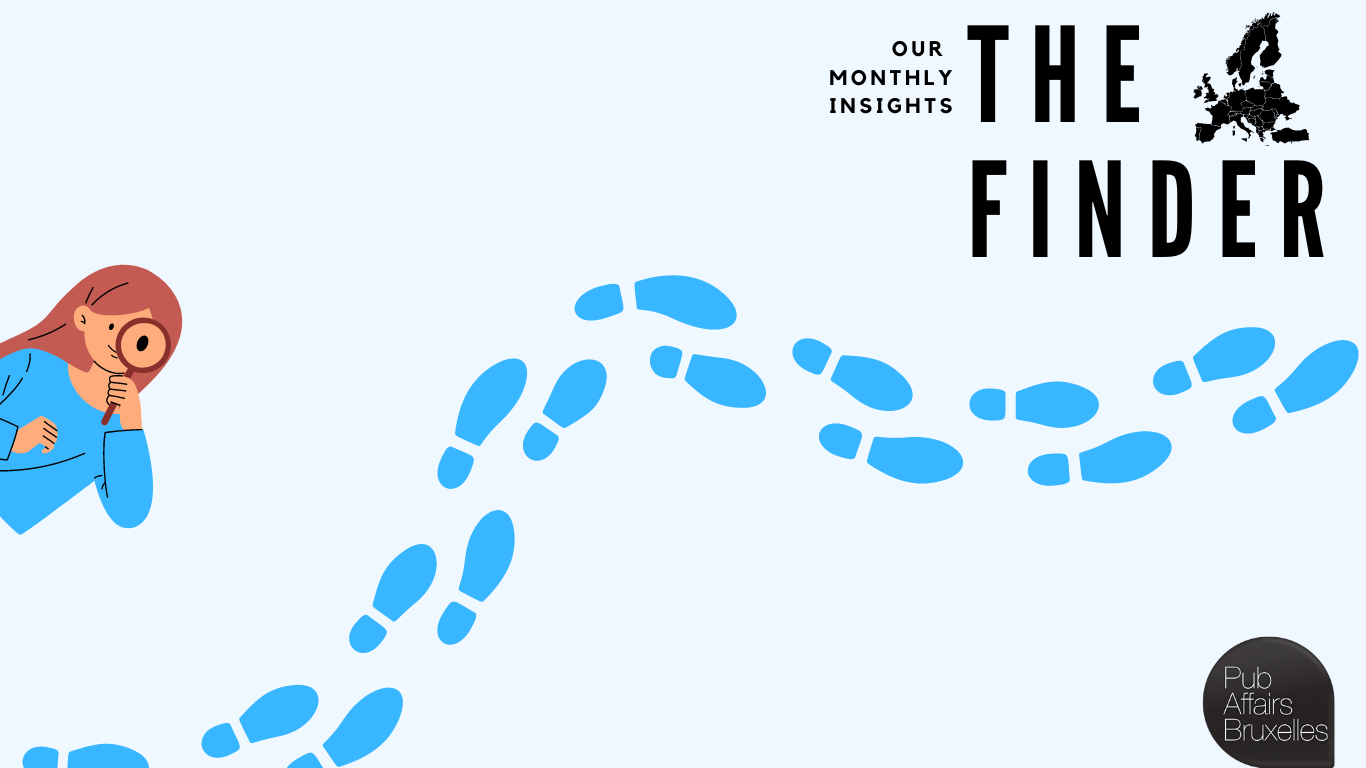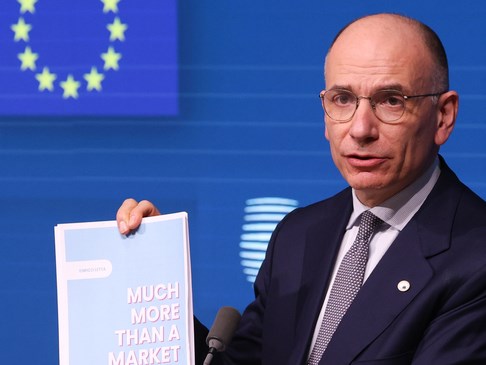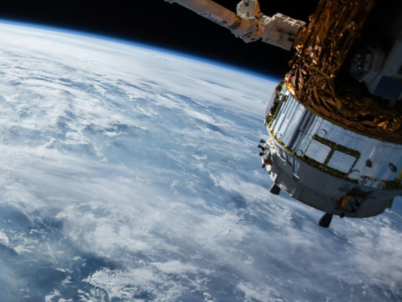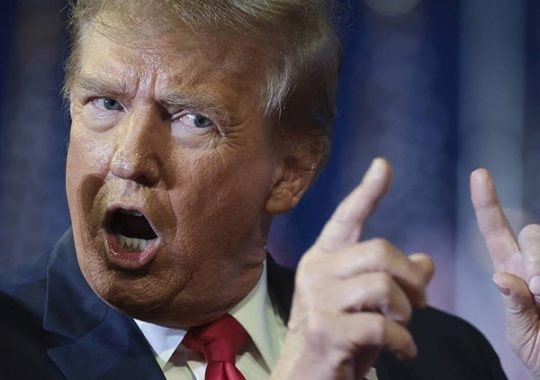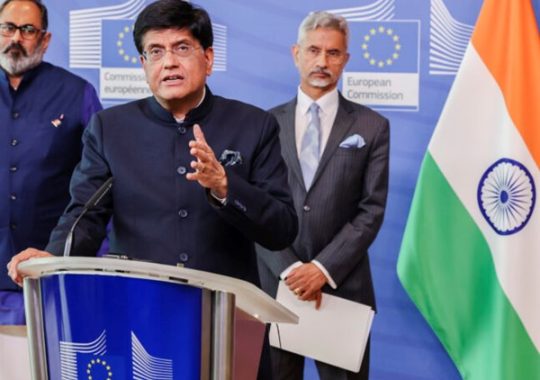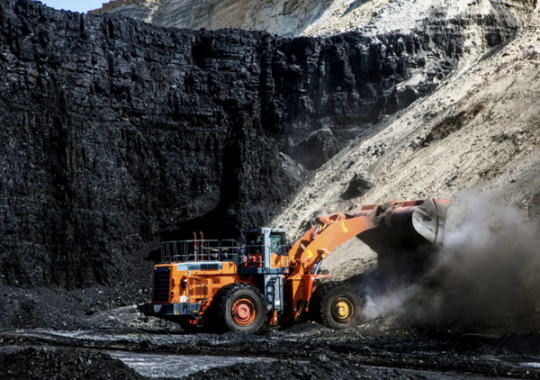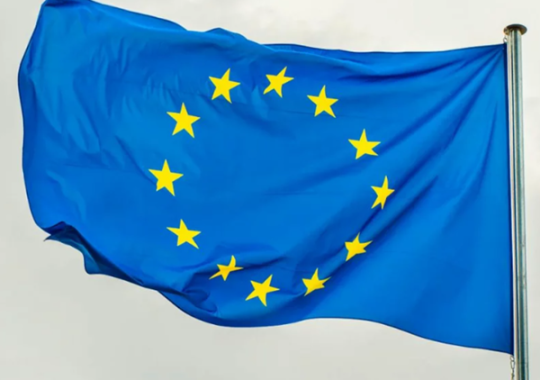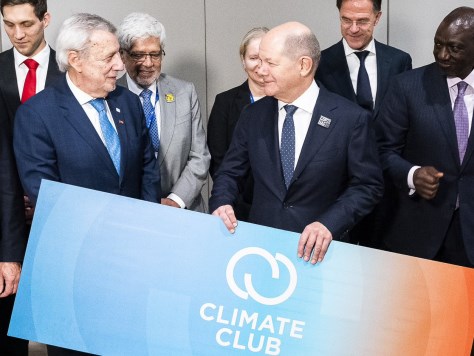As the European Parliament concluded its final plenary session of the 9th term, the Letta Report has kick-started the public discussion on both the Single Market reform and the future of the European Union. In addition, the recent public stances of former ECB President Mario Draghi have further ignited this debate, also given the presentation of his report due in June, after the elections. The question of how to foster a stronger Single Market is rebounding across all sectors of the EU economy, including defence. However, to what extent the EU as a whole would be able to find a common position to realise the ambitious aim of regaining the EU’s competitive edge, is often a question of debate.
The topical moment Europe is facing was further remarked last week by Emmanuel Macron’s second speech at the Sorbonne that warned that the EU could be threatened by the rivalry from the US, Russia and China if it does not achieve “strategic autonomy“. Meanwhile, the perspective of a second Trump presidency is also a matter of concern for the future of Europe not only in relation to the war in Ukraine but also in terms of how Europe should tackle the new geo-economic fragmentation of the current international arena. Within this context, the tensions in the Middle East do not seem to ease, but rather add fuel to the fire.
In a CER Insight on the Letta Report, the two authors Aslak Berg and Zach Mayers acknowledged that former Italian Prime Minister Enrico Letta characterises the EU single market as ill-suited for the current global landscape and pinpoints accurately numerous pressing issues to be tackled. However, they also argued that if Letta’s report aims to stimulate reform, EU member states must give priority to his proposals and be able to reach the necessary compromises accordingly. Otherwise, they maintained, the report may not significantly advance EU policy reforms in crucial domains such as the EU capital markets fragmentation, innovation, as well as state aid and trade.
On a similar fashion, a CEPS In-Depth Analysis anticipated the Letta Report in raising several questions regarding the digital aspects of the Single Market. J. Scott Marcus emphasised that the Single Market is crucial for both the EU’s internal unity and competitiveness on a global scale, particularly in comparison to the US and China. Nevertheless, he also noted that “fully achieving the Single Market’s ambitious goals will always be challenging as long as the EU continues to resemble a confederation more than a federal republic”. In fact, the question of European unity remerges with a bit of an idealistic afflatus, rather than the classical realistic approach on the difficulties to reach comprises at the European Council level.
Another sign of the current challenges and transformation which the European Union is undergoing in both the physical and digital realm is the European Space Agency’s (ESA) possible evolution. In fact, the ESA might be transitioning from its current status of a purely civilian and scientific organisation to one that also takes on the responsibility of enhancing the security of space installations. Moreover, the ESA’s new ‘defence for space’ approach has surely increased the institution’s military relevance, a Finabel publication reported.
As a sign of the possible tensions that may arise from a second Trump mandate, Mark Leonard, in a Project Syndicate Commentary, attributed to European nation’s sluggishness in acknowledging the possible consequences of Donald Trump’s potential return to the White House. He also added that “the most compelling case that mainstream European parties can make in the lead-up to the elections is the urgent need for a geopolitically oriented EU. Regardless of the fate of the US aid package, Europeans’ future should be determined by their own electoral and political processes, not by American political dynamics.”
By contrast, an ECFR Commentary went back to the question of the EU’s economic and diplomatic relevance on the global stage through the lens of the emerging tensions at the WTO level. Agathe Demnarais provocatively exhorted to “forget about Trump” in order for Europeans “to start worrying about trade tensions with emerging economies”, particularly, but not exclusively, India. The author also argued that, in Brussels, the prevailing sentiment revolves around fortifying policies to withstand the potential Trump presidency, in which trade disputes seem highly probable. Conversely, she explained, India’s position at the World Trade Organization indicates that trade tensions between Europe and emerging economies are poised to escalate in the forthcoming years.
On a similar note, a SWP Comment on the question of enhancing the external dimension of the EU’s raw material policy elaborated on the risks associated with Europe’s supply chain dependencies. In her commentary, Maike Schulze maintained that to attain a degree of “strategic autonomy” regarding the EU raw material supply chain, it is crucial to strengthen cooperation with third countries which are abundant in minerals. Against this backdrop and given the present geopolitical climate, the author encouraged the EU to make a coordinated push in its raw material diplomacy to establish partnerships that are attractive to third countries.
In light of both the question of the EU leadership in international cooperation and the upcoming elections, an ECDPM Commentary by Mariella Di Ciommo and Chloe Teevan argued that the European Union “should invest in a more strategic relationship with countries in the Global South”. The publication elaborated on the fact that, as Europe experiences a warning signal of political influence and economic significance loss, the old continent needs to adjust to a world where relationships have become increasingly transactional and where countries in the Global South possess greater agency. Therefore, Europe must present a proposition to its partners that aligns its own interests with theirs, as, in failing to do so, Europe risks further marginalisation to the detriment of its own stability, security and prosperity.
Another facet of the interrelations between Europe’s external relations and industrial competitiveness is presented by an Ifri Study on Germany’s strategy on climate foreign policy that highlighted how Germany “has had to adapt its climate policy to the upheavals caused by the Ukraine war, which has turned its economic, energy and military model upside down. Against a backdrop of high energy costs and increasing calls for reshoring in Europe, the German industry is looking at how to maintain its competitiveness while decarbonising its industry”. In this connection, the authors echoed the widespread acknowledgement that “climate, energy and development partnerships play a vital role […], and emerging countries are key partners for climate initiatives”.
Within this context, most unfortunately, the tensions in the Middle East do not seem to ease, but rather add fuel to the fire. A Clingendael Expert Insight on the Israel-Hamas war put together a series of videos, articles and analyses to portray the increased level of conflict in the aftermath of the Iran attack on Israel. The topic of the extent Europe’s credibility has been damaged during this conflict was also part of the selection.
This editorial is authored by Massimiliano Gobbato, Communications Director. Contributions by PubAffairs Communications Team’s Nicole Finucci, Sadbh de Staic and Kristina Vilenica to the drafting of ‘The Finder’ are gratefully acknowledged.
From our Editorial Partners
Enrico Letta’s Report: More than a market, but less than an agenda | Centre for European Reform (CER)
On April 18th, former Italian prime minister Enrico Letta published his long-awaited report on the future of the EU’s single market, entitled ‘Much more than a market’. Letta describes the EU single market as unsuited for a world where the EU’s share of the world economy is shrinking and where it faces competitors less willing to play by global norms. His report correctly identifies many of the EU’s most urgent problems.
Digital aspects of the EU Single Market | Centre for European Policy Studies (CEPS)
The Single Market is essential both for internal cohesion and for the EU’s global competitiveness versus the United States and China. It seeks to ensure and enable the free flow of services, goods, capital and people within the EU/EEA; however, none of these four traditional dimensions of the Single Market have been fully achieved – neither in the physical world, nor in the online world.
ESA's 'Security Turn': opportunities and challenges for European defence | Finabel
In recent years, the European Space Agency (ESA) has seen a gradual expansion in its mission to now include ensuring space security. Such a change may have been favoured by the evolving needs of the EU, which is one of the ESA’s main partners and has become more and more concerned with the security and resilience of its space assets, as well as increasingly relevant in the ESA’s funding.
Europe must prepare for a Trump presidency | Project Syndicate (PS)
European countries have been slow to recognize the potential implications of Donald Trump returning to the White House in 2025. Over the next six months, European countries must figure out how to secure essential ammunition, bolster their defense funding, and sustain support for Ukraine in the absence of US aid.
Forget about Trump: Why Europeans should start worrying about trade tensions with emerging economies | European Council on Foreign Affairs (ECFR)
Something unusual happened at the 13th World Trade Organisation’s ministerial conference, which concluded in Abu Dhabi in March. For once, China was on the same side as the United States and the European Union on trade topics. This does not signal an ease in tensions between Western economies and Beijing. Instead, American, European, and Chinese negotiators briefly joined forces only to fight a common adversary: India.
Security of supply in times of geo-economic fragmentation | German Institute for International and Security Affairs (SWP)
The recent political consensus on the European Critical Raw Materials Act (CRMA) marks a significant step towards a common raw materials policy within the European Union (EU). Against the backdrop of increasing geopolitical tensions, the EU aims to bolster its “strategic autonomy” within its raw material supply chains. To achieve this goal, it is essential for the EU and its member states to enhance collaboration with mineral-rich third countries.
A new EU leadership and international cooperation for the 21st century | European Centre for Development Policy Management (ECDPM)
In June, European citizens will elect a new EU parliament and, in late autumn, or early 2025, the next European Commission and EU foreign policy chief will take office. These future European leaders must carry an unambiguous message: ‘We understand why European citizens are worried about the economy, migration and security – but in a more fragmented and competitive world, engaging in a smart way with partners across the world will be a help, not a hindrance, to their safety and prosperity.’
Germany's strategy on climate foreign policy: Balancing sustainable development and energy security | French Institute of International Relations (Ifri)
With the war in Ukraine, Germany’s “traffic light” coalition government has had to adapt its climate policy to the upheavals caused by this war, which has turned its economic, energy, and military model upside down. Against a backdrop of high energy costs and increasing calls for reshoring in Europe, German industry is looking at how to maintain its competitiveness while decarbonizing its industry.
Experts Insights - Israel-Hamas War | Clingendael
To navigate through the latest news and place the events in a broader perspective, we have created a compilation of our latest publications, videos and ‘in the media’ expert comments.

